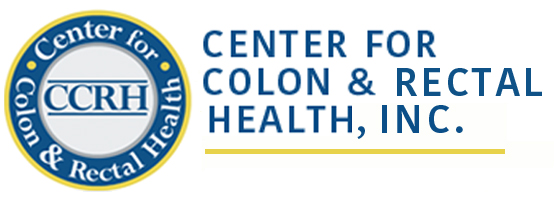The only way to prevent colorectal cancer is to find it as a benign polyp and remove it before it can become a cancer. Colorectal cancer is also one of the most preventable cancers. At the Center for Colon & Rectal Health we specialize in the diagnosis and treatment of colon and rectal cancer. To understand your risk for developing polyps and cancers, a detailed family history and review of symptoms is performed. Where appropriate, we will schedule you for a colonoscopy. We follow national screening guidelines for colorectal cancer which are based on your particular risk factors. These include a first degree relative (parents, siblings, or children) with colorectal cancer or certain types of precancerous polyps, a significant change in bowel habits, bleeding from the rectum, unexplained weight loss, or a low blood count found on a blood test.
Colonoscopy is a routine procedure performed by our doctors many times a day with very low risk. We have several types of preparations that will accommodate your taste and ability to clean out the bowel. It is a normal screening examination as is a prostate check, mammogram, or pap smear.
The greatest impediment to screening colonoscopy is fear. Fear of the bowel prep, fear of what might be found, and fear of complications are what most patients report when asked about why they did not get their colonoscopy. Unfortunately, most patients who are reporting these fears are referred for a colorectal cancer found when they become symptomatic. This may be too late to offer a cure. Removing a polyp before it becomes a cancer is truly the only way to prevent colorectal cancer.
We are happy to spend as much time as you need to discuss the procedure, the prep, and the low risks that are inherent in this and any other invasive procedure. Having a list of questions prepared can be very helpful at the time of consultation. If you have any symptoms, please be sure to discuss them at the time of your visit.
Why a Colorectal Surgeon?
While a colonoscopy is a routine diagnostic test, there is risk associated with any procedure. Should there be a complication, as surgeons, we can immediately fix the problems that rarely occur. In addition, we can be more aggressive about polyp removal and retrieval. Patients are often referred to CCRH because an endoscopist could not remove a polyp. Many of these patients will not need surgery if we can remove the polyp despite there being a higher risk than a standard colonoscopy. In this way, many surgeries are avoided altogether. Should a complication occur, the CCRH surgeons can address the problem surgically.
More Information
Our goal is to provide you with a safe and comfortable environment. Every patient is different. We strive to offer you the most accurate and effective treatment options.
Please contact Bucks County’s premier colorectal group to schedule an appointment and to learn more.
St. Mary Medical Center
St. Clare Medical Building, Suite 130
1203 Langhorne-Newtown Road
Langhorne, PA 19047
215-741-4910


